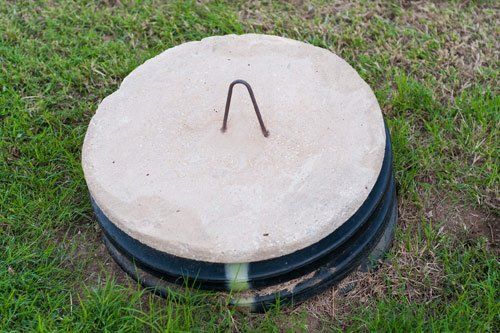Blog Post
Reasons to Have Your New Home's Septic System Inspected
- By Admin
- •
- 27 Mar, 2018

If you've just purchased a home with a septic tank, you are now one of over 21 million homeowners who have a private septic system on their property. Your home passed inspection by a home inspector before you bought the house, but there are still reasons why you should have your new home's septic tank inspected by a specialist.
Your Home's Septic System May Have Overflowed
Previous homeowners may not have disclosed issues with the property's septic tank in the past. A common problem with a residential septic tank is overflowing, caused by poor maintenance of the septic tank, failure to have the tank drained periodically, and frequent use of a sewer system with a tank that is not large enough for the usage.
An overflowed septic tank may result in damaged sewer pipes that leak due to sewage pressure or backup in the lines. To prevent future overflowing problems, have your new home's septic tank and sewer system fully inspected, including having cameras sent down the septic lines to ensure they are working properly.
Your Home's Soil May Not Have Been Tested
A property’s soil is typically tested prior to installing the septic tank. Soil testing allows the homeowner to know how porous their soil is and how well soil will drain. Soil testing can also be used to determine if a well's water supply is contaminated, which is a serious issue that needs to be addressed promptly.
Soil testing is a large determining factor of how large of a septic tank can be placed on the property. In short, your home may have a septic tank that is too large for your property's soil conditions (which can cause overflow from sewage backing up), or your home may be able to tolerate a larger septic tank if your soil is especially porous and cooperative.
Unless your home's sale comes with proof that soil was tested prior to its current septic tank being installed, you should have the soil tested by a professional septic tank installation and repair company. Based on the findings of your inspection, you may need to replace your current septic tank for another size, or you may find that the tank you currently have is appropriate.
Your Home's Septic Tank May Need to Be Replaced
Part of your home's septic system inspection will include a water test to see if the tank or well used by your home is contaminated. If your septic tank is not filtering sewage as it should, the unit should be replaced.
Your family or home's size determines the size of septic tank you need. For example, if the current septic tank on your property only has a capacity of 1,000, yet your home's square footage is 2,500 square feet, your septic tank is not large enough to accommodate your family's sewage removal needs. As a general rule, your septic tank should be able to hold up to three years' worth of sewage before needing to be drained.
Draining your septic tank periodically will help reduce the chances of backup or overflow. A tank that is too small for your family or home size will require frequent draining, which will be determined by your septic tank specialist. A specialist may also recommend you replace your tank for a larger unit to keep well water clean and your family's frequent water use under control.
When you first buy your home, arrange an appointment with a septic tank specialist to have your sewer system inspected. Have your inspector explain how your septic tank works, and ask if repairs or replacement of the unit are necessary for safe sewage operation of your home. Our specialists at JT Sanitation are happy to assist you with all your septic system needs; call us today.
Share
Tweet
Share
Mail
Business Hours:
Monday-Friday, 7 a.m.-5 p.m.
Saturday, 8 a.m.-Noon
24-Hour Emergency Service
Share
Tweet
Share
Mail
Licensed, Bonded & Insured
VA – FHA Conventional Certifications




^
Content, including images, displayed on this website is protected by copyright laws. Downloading, republication, retransmission or reproduction of content on this website is strictly prohibited. Terms of Use
| Privacy Policy